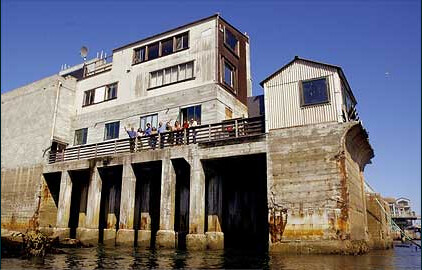World Oceans Day Brings Warnings from Plastic Pollution Council
On June 4th I helped form the Strategic Council on Plastics Pollution. Our goal is to raise awareness of rising threat of plastic pollution to people, animal and the environment.
Following a presentation to Google employees by Captain Charles Moore, an oceanographer who pioneered the study of plastic debris, the Strategic Council on Plastic Pollution convened at the Google Campus in Mountain View, California. It was our first meeting. Said council member and marine biologist Dr. Wallace J. Nichols, “We are finding plastic in the stomachs of sea turtles, birds, and fish all over the world. I find this extremely disturbing."
In honor of World Oceans Day, the council issued the following statement regarding this increasingly urgent threat to wildlife and human health:
Do you know where our plastic goes?
Did you know that our oceans are filling up with plastic pollution?
Plastic fragments contaminate even the most remote locations on earth, and harmful chemicals leached by plastics are present in the bloodstream and tissues of almost every one of us.
Plastic pollution harms people, animals, and the environment. Plastic is not biodegradable. In the marine environment, plastic breaks down into smaller and smaller particles that absorb toxic chemicals, are ingested by wildlife, and enter the food chain that we depend on.
Consumption of throwaway plastics, such as bottles, containers, bags, and packaging, has spiraled out of control.
Recycling is not a sustainable solution. The reality is that most of our plastic waste is landfilled, downcycled or exported to other countries. And tragically, millions of tons of plastic are poisoning our oceans.
Businesses and governments need to take responsibility for new ways to design, recover and dispose of plastics.
Plastic pollution is the visible symbol of our global crisis of over-consumption. Let's pledge to shift our societies away from the disposable habits that poison our oceans and land, eliminate our consumption of throwaway plastics, and begin embracing a culture of sustainability.
Our health, our children, and the survival of future generations depend on us.
To stay connected with the issue, join our facebook group Think Beyond Plastics or just visit www.ThinkBeyondPlastics.org
Tuesday, June 16, 2009
Subscribe to:
Post Comments (Atom)

No comments:
Post a Comment